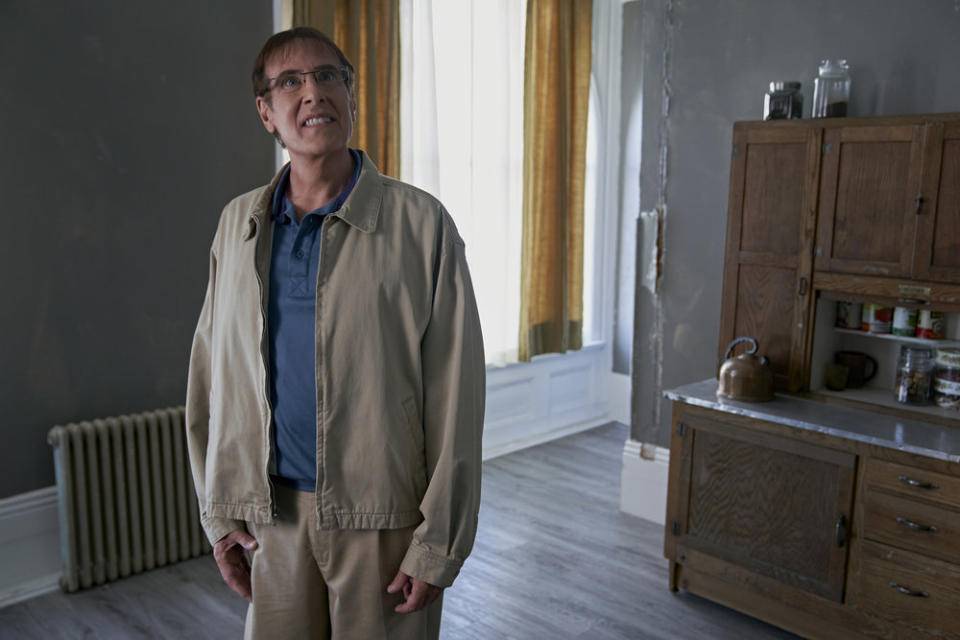The Rise of the Docu-Comedy, 2023’s Hottest New TV Genre


“Jury Duty” is a reality show. Or is it a sitcom? A documentary? An elaborate prank?
How about all of the above?
More from IndieWire
One of 2023’s defining breakouts, the Amazon Freevee series is the crown jewel of an ascendant hybrid genre sometimes referred to as docu-comedy. Even the people who made the show aren’t sure how to classify it. Director Jake Syzmanski and co-creator Lee Eisenberg say they’ve never heard that term. Eisenberg suggested hidden-camera comedy, but that’s not really accurate either, as everyone involved knew they were being filmed. Robyn Adams, a producer, used “outlined improv.” Whatever nomenclature best applies, this increasingly common format has enjoyed a banner year, with “Jury Duty,” Peacock’s “Paul T. Goldman,” BBC and Netflix’s “Cunk on Earth,” and HBO’s “How To with John Wilson” picking up where the likes of Sacha Baron Cohen and Nathan Fielder left off.
“There was a big worry about, ‘Will the audience be on board for this? Will it feel familiar enough?'” Szymanski told IndieWire, recalling the early development of “Jury Duty,” which cast an unsuspecting everyman named Ronald Gladden opposite actors playing eccentric jurors in a fictional civil trial. The actors worked together to hit premeditated plot beats, but everything zigged and zagged based on Ronald’s real reactions. It was an experiment that could have fallen apart or turned cruel had the showrunners not found such a lovable hero to center.
The writers and producers behind these docu-comedies cite a wealth of influences. Some come from late night, drawing on man-on-the-street pieces à la Triumph the Insult Comic Dog. Others, like “The Office” veteran Eisenberg, enlist what they learned from sitcom writers’ rooms to craft blueprints that can be amended in real time to accommodate whatever unfolds once cameras are rolling. All of them owe a debt to Cohen, who revolutionized the roving (and, in his case, confrontational) docu-comedy with “Da Ali G Show,” “Borat,” and Showtime’s “Who Is America?”
“Sacha is a godfather of this style,” said “Paul T. Goldman” mastermind Jason Woliner, who directed “Borat Subsequent Moviefilm” while trying to get his own project off the ground. “He pioneered so much of the technique of working with real people. A lot of it is about how he takes a sense of adventure going into situations and really not knowing how things are going to shake out.”

Outside of Cohen and a select few like him, the docu-comedy started to crystallize in 2013. That’s when Fielder’s “Nathan for You” premiered. Co-created with Michael Koman, a “Late Night with Conan O’Brien” alumnus who recently worked on “How To with John Wilson,” the Comedy Central show chronicled Fielder executing absurdist schemes meant to boost the profits of flailing small businesses. Woliner directed a few “Nathan for You” episodes, and in 2017, he made the pilot for “Goldman,” a meta true-crime riff about a middle-aged oddball investigating his duplicitous second wife.
When pitching networks and streaming services, the only comparison Woliner could think of was “The Act of Killing,” the acclaimed 2012 documentary in which an Indonesian executioner reenacts years-old bloodshed. But “Paul T. Goldman” was far lighter in tone, with its eponymous subject, whom Woliner met through Twitter, reenacting and processing his own stranger-than-fiction saga. It took Woliner five years to get a green light. By the time the show debuted in early 2023, audiences could relate its self-reflexive approach to antecedents like “The Rehearsal,” Fielder’s boundary-pushing follow-up to “Nathan for You.”
Though docu-comedies borrow the grammar of reality TV and mockumentaries like “This Is Spinal Tap,” they often have divergent narrative philosophies. In many ways, “How To” is the inverse of “Jury Duty.” Instead of awaiting someone’s response to planned stimuli, Wilson and his team sought out subjects and images that illuminated specific topics (“How To Make Small Talk,” “How To Remember Your Dreams”). What they discovered along the way could lead them in any direction. Each episode felt like a collage compiled on the streets of New York City. Wilson’s humorous, poignant narration was written and revised accordingly.
“What I think is completely original to John, as far as I can tell, is the style of using documentary footage as metaphor,” Koman said. “You’re getting two things at the same time: You’re getting a shot of something that you know really happened that’s interesting in and of itself, and you’re using it as a metaphor to talk about something that’s also real.”
Of the docu-comedies that bowed this year, Charlie Brooker’s “Cunk on Earth” may be the most akin to Sacha Baron Cohen. British performer Diane Morgan plays Philomena Cunk, the ill-informed host of a history program who asks real-life experts wacky questions about religion, war, technology, and civilization. One key difference: The joke is always on her. Morgan’s deadpan delivery, not unlike that of Fielder and Woliner, pokes fun at the reverence many documentaries apply to nonfiction accounts.

Even as more TV viewers embrace the genre’s twisty nature, which invites speculation about what’s organic and what’s calculated, some find fault in its tactics. If nothing else, the cringe potential is high. “On Twitter, I still get people going, ‘This presenter is terrible. She doesn’t know what she’s talking about. She’s getting all these facts wrong,'” an amused Morgan told Seth Meyers in March. On a more serious note, certain skeptics are turned off by the power imbalance that arises when showbiz professionals put civilians who aren’t media savvy in potentially humiliating scenarios.
“It’s a very legitimate conversation to have about these kinds of shows,” Koman said. “Our main job was simply never to misrepresent the person. The idea that a person is being duped, that they’re engaging in the filming of this without the complete understanding of the context, is just as true of every reality show. To me, a lot of the reality shows do misrepresent people because they’re edited to make a person look a certain way. For us, the goal is the opposite. Take the really rudimentary idea of a show like ‘Candid Camera.’ The goal of that show was to observe a person in a real situation. No matter how they reacted, the audience is on their side because they understand what the person is going through.”
Ethics aside, where the docu-comedy goes from here is anyone’s guess. Woliner and Koman say they’ve been approached about concepts promising to be the next “How To” or the next Nathan Fielder knockoff. Interestingly enough, they’re both focused on fully scripted comedy right now. So is Fielder, whose dark satire “The Curse” is currently airing on Showtime. That means the docu-comedy, if it’s to continue, exists on open-ended terrain.
“Audiences are just excited for things that are fresh,” Eisenberg said. “I think perhaps why ‘Jury Duty’ was the biggest commercial success is that it really harkened back to ‘The Office’ and ‘Parks and Rec.’ It felt like cozy television. It was very funny, it led with storytelling, and it led with heart. All of those things are the hallmarks for pretty much every successful half-hour comedy with the exception of ‘Seinfeld,’ which had no heart but had every other thing I said in spades.”
Best of IndieWire
Sign up for Indiewire's Newsletter. For the latest news, follow us on Facebook, Twitter, and Instagram.


